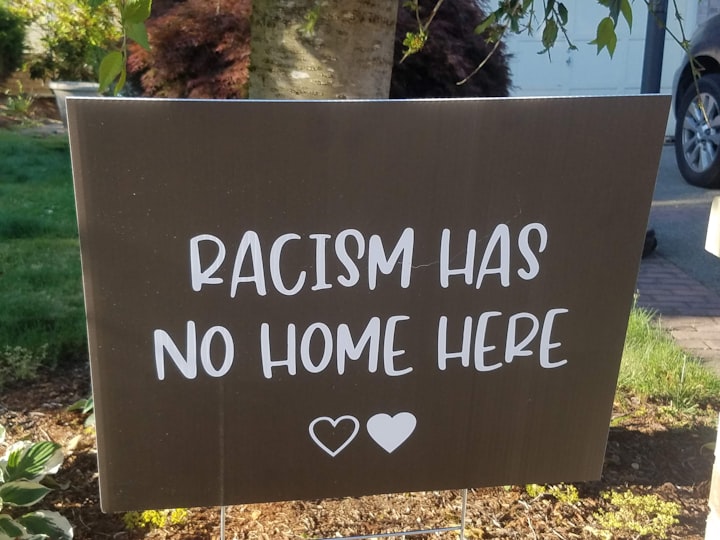HBCUs Should Recruit Anti-Racist Faculty
Historically Black Colleges Have a Duty of Care to Provide Safe Spaces for Students

The prevailing thought in the Black community is that Historically Black Colleges and Universities (HBCUs) are safe spaces where Black students get a perhaps once-in-a-lifetime chance to not be a marginalized minority; to experience a discrimination-free higher education; and to be treated as a human-being, as opposed to struggling through the typical “learning-while-Black” experience. This feel-good image of HBCUs was somewhat diminished following two racially-charged incidents at the end of 2022.
Winston-Salem State University
The most recent racialized incident took place in December 2022 at Winston-Salem State University, a historically Black college in North Carolina. It involved Black student, Leilla Hamoud and non-Black History professor, Cynthia Villagomez, who got into an argument about an assignment. The police were called, allegedly by a second professor, which resulted in Hamoud being arrested. Some of the video footage shows Villagomez, with a white professor, holding hands in a defiant “us against them” fashion, illustrating the underlying racial tension.
Tennessee State University
Prior to the case at Winston-Salem State, another racially-charged confrontation was captured on video in November 2022, this time, at a different HBCU — Tennessee State University. In the video, Robert Pickard, a white History professor is seen aggressively shouting at a Black student. In what appears to be a hate-filled rage, Pickard gets right in the student’s face, showing no respect for personal space.
Some Personal Observations
As a former member of faculty at an HBCU, these events are not surprising to me. I have witnessed and experienced a fair amount of problematic behavior, and let’s just say that I could well imagine the above-mentioned scenarios happening at the institution in which I worked. Indeed, some of the non-Black staff that I encountered acted in ways that were indicative of some or all of the following: obnoxious arrogance in interpersonal interactions; the omission of racial discrimination as an explanatory factor in relevant projects; and the undermining of my achievements.
I occasionally came into contact with a white female faculty member with a perpetually suspicious look on her face. She used to contemptuously glare at everyone during faculty meetings, her fierce demeanor reminiscent of the correctional officers portrayed on prison documentaries.
In the case of another white female member of staff, her field of expertise was in a policy area that disproportionately affected Black men; however, she studiously avoided the pertinent topic of racial discrimination in this work. I recall this usually emotionless woman literally grimacing when I ventured to suggest racial bias as a relevant variable in relation to future projects.
Not surprisingly, she was mortified when the boss assigned her the task of distributing two policy briefs that I had written (about Black men’s health) at an out-of-town conference that we were asked to attend. (This employee was attending the conference for more than one day, while I was asked to attend for only a few hours.) Although she followed the boss’ initial directions (taking the policy briefs to the conference as instructed), when I arrived, she walked over to where I was sitting (in an audience) and unceremoniously dumped a pile of about 100 policy briefs at my feet, announcing, “I’m leaving these with you.”
Many non-Black faculty at my HBCU held senior positions. One white professor was very negative with me during my job interview and basically said that he disagreed with the Black professor who was planning to hire me. When I applied for a faculty position, another white professor tried to assign me to the most junior level in the department, but fortunately was overruled by a Black professor.
Of Course HBCU Staff can be Anti-Black
On social media, the “anti-woke” folk have been stating that it is apparently impossible to be anti-Black if you work at an HBCU — another version of the “I have Black friends” spiel. Fortunately, this moronic argument is increasingly being dismissed, and can be similarly rejected in relation to HBCUs.
First, it is generally accepted by most enlightened individuals that our society is deeply biased against Black people, and that everyone is socialized to hold implicit biases that favor whites and disfavor Blacks. It should be obvious that HBCU employees are not exempt from these biases.
Second, It could be argued that the very act of seeking a job at an HBCU (if you are not Black) is to exacerbate the employment inequities among African Americans. In other words, non-Black professors are aware that they can get a job in a white institution much more easily than their Black counterparts. By applying for jobs in HBCUs, they are taking away the limited jobs that Black academics can comfortably apply for; this is not anti-racist behavior.
Third, there are well-documented examples of white nationalists who have been employed by HBCUs. For example, Greg Johnson, a white nationalist listed on the extremist files database of the Southern Poverty Law Center (SPLC) was employed by Morehouse College for three years. The SPLC reports that Johnson made the following statement about his Black students on a listserv in 2001:
“After a while, I began to notice that ALL of these apparently “bright” black students were not particularly capable of logic and critical thinking, even though they were highly attuned to the social realm and quite capable of giving the superficial impression of high-level cognitive functioning.”
Also listed on the SPLC’s extremist files database is the white nationalist, Michael Hill. According to the SPLC, Hill taught at the historically Black Stillman College for a staggering 18 years, and as noted by Fox 46 News, “kept his racist views to himself.” However, following his resignation, he “mocked his former students,” as reported by the SPLC:
“One of few benefits I got on a regular basis from having taught for 18 years at Stillman College was reading the class rolls on the first day of class…Where do these people get such names?”
While these examples are in the public domain, how many other deeply prejudiced individuals are out there teaching unsuspecting Black students and/or leading research programs? If white nationalists have the audacity to seek out employment at historically Black colleges, is it surprising that “everyday racists” work at HBCUs?
HBCUs are meant to be safe spaces for Black students to learn and enjoy student life, free of the discrimination they must navigate in wider society. Indeed, many Black students specifically choose to attend HBCUs so that at this important time of their lives, they do not have to deal with the prejudice faced by those who attend Predominantly White Institutions (PWIs).
Ultimately, HBCU leadership owes its students a duty of care to recruit faculty who can demonstrate a genuine commitment to the upliftment of the Black community, that goes beyond lip service and buzzwords.
About the Creator
Clare Xanthos
Writer, scholar and researcher specializing in racial equity, racial health equity and racial justice. Co-editor of: "Social Determinants of Health among African-American Men." PhD in Social Policy (London School of Economics).






Comments
There are no comments for this story
Be the first to respond and start the conversation.